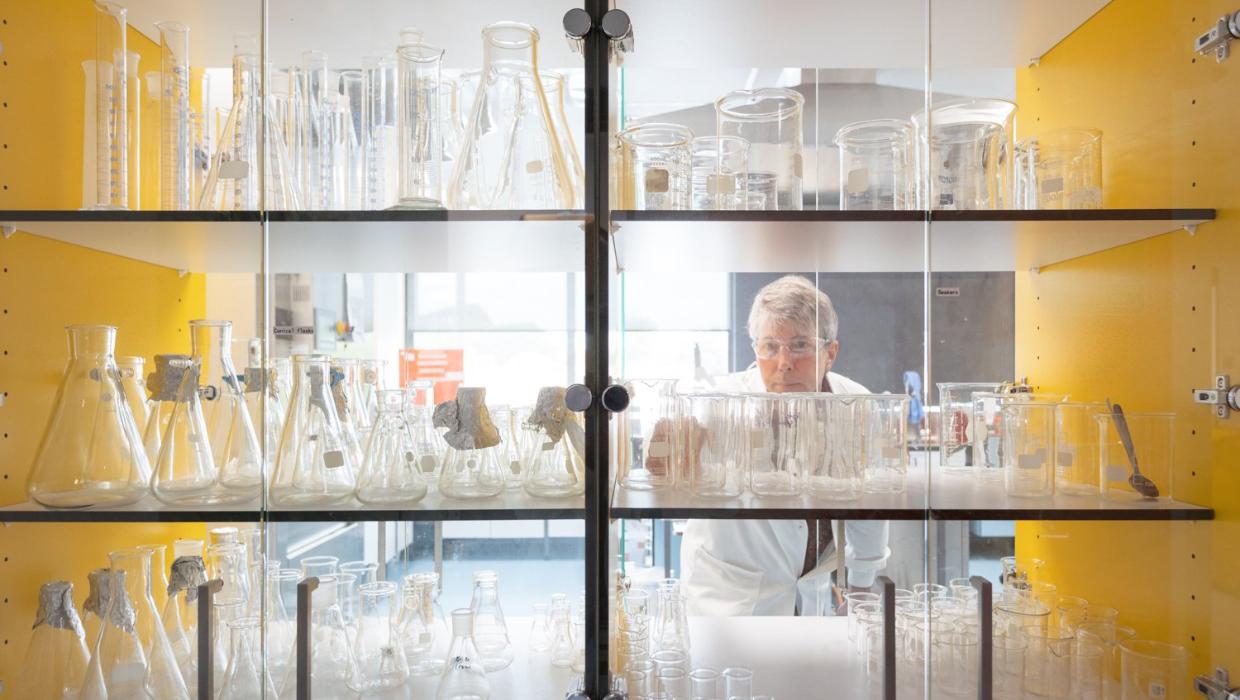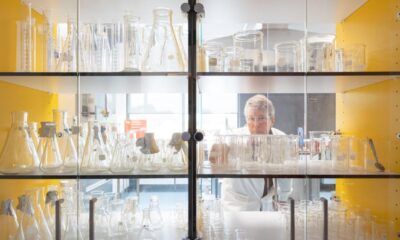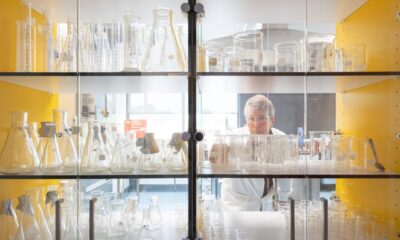Science
New Zealand Secures $20 Million for Innovative Bioeconomy Research

The Bioeconomy Science Institute has successfully acquired over $20 million from the Endeavour Fund to support two pioneering research programmes aimed at transforming New Zealand’s food, biotechnology, and horticultural industries. This funding will significantly enhance the nation’s export capabilities and sustainability efforts.
Key Programmes for Future Growth
The first initiative, titled Super-Storing: Extending the Life of NZ’s Perishable Fruits, has received $10.2 million. Led by Associate Professor Robert Schaffer and Dr. Rosie Schröder, the project seeks to replicate the long storage life of kiwifruit in other perishable fruits, including summer fruits and berries. Utilizing advanced gene technologies, the team aims to enable these crops to be stored and shipped by sea, particularly to markets in Asia and Europe, thereby enhancing New Zealand’s export potential.
Currently, New Zealand’s fresh fruit exports generate approximately $3.5 billion annually, primarily from kiwifruit and apples. This innovative research could diversify the horticultural sector and support the New Zealand Government’s ambitious goal of increasing export value from $7 billion to $12 billion per year. It is anticipated to create over $600 million in additional domestic economic activity, reduce food waste, and lower emissions by substituting air-freight with sea-freight solutions.
“This work will directly benefit growers, extend harvest windows, and build resilience against extreme weather,” said Schaffer. “It’s about unlocking the full potential of New Zealand’s horticultural diversity.”
The second initiative, Turning Pine Waste into Premium Proteins, has been allocated $10.4 million and will span five years. Spearheaded by Dr. David Hooks and Dr. Scott Knowles, this programme will employ Precision Fermentation (PF) techniques to convert discarded pine forestry residues into high-value proteins. The project aims to transform softwood byproducts, typically burned or left unused, into fermentation feedstocks through innovative chemoenzymatic methods.
These feedstocks will facilitate the cultivation of engineered yeast strains capable of producing specialty proteins such as osteopontin and casozepine, which provide nutritional and functional benefits comparable to traditional animal-derived ingredients. This programme aligns with New Zealand’s transition towards a low-emission circular bioeconomy, tackling challenges related to feedstock availability, manufacturing scale, and the regulatory landscape surrounding gene technologies.
“This is more than a research programme,” Hooks stated. “It’s a blueprint for how New Zealand can lead in the next generation of food and biotech innovation. This is about creating value from what we already have. New Zealand has abundant bioresources and world-class science. Precision Fermentation allows us to connect the two.”
Knowles emphasized the significance of this initiative, explaining that converting forestry residues into feedstocks paves a new path for sustainable protein production, aligning with global efforts to establish climate-resilient food systems.
Support for a Sustainable Future
Researchers anticipate a range of innovations from the second programme, which includes the development of novel enzymes for converting lignocellulosic biomass into fermentable sugars, yeast engineering for high protein expression, and single-cell protein as a co-product for animal feed. Additionally, digital twin modelling will be used to simulate and optimize PF processes.
The Bioeconomy Science Institute, established by merging AgResearch, Manaaki Whenua – Landcare Research, Plant & Food Research, and Scion, is now New Zealand’s largest research organization. This consolidation reflects the Government’s strategy to enhance the impact of science on the nation’s economy. Recently, the Hon Shane Reti, Minister of Science, Innovation, and Technology, unveiled the new visual identity of the Bioeconomy Science Institute during a visit to its Lincoln campus.
“This is an exciting step in sharing our new organisation with the outside world,” said Mark Piper, Transition Chief Executive. “As we start our journey as the Bioeconomy Science Institute, it’s great to be able to share this new visual identity which speaks to the organization that we are building, for the benefit of Aotearoa New Zealand and the world.”
Minister Reti also announced an additional $6.5 million in industry funding to develop methods aimed at reducing methane emissions from grazing livestock. This funding underscores the government’s commitment to fostering sustainable agricultural practices.
The Bioeconomy Science Institute’s initiatives not only promise to advance New Zealand’s research capabilities but also position the country as a leader in sustainable food and biotechnology innovation, with significant benefits for both the economy and the environment.
-

 Sports2 months ago
Sports2 months agoNetball New Zealand Stands Down Dame Noeline Taurua for Series
-

 Entertainment2 months ago
Entertainment2 months agoTributes Pour In for Lachlan Rofe, Reality Star, Dead at 47
-

 Entertainment4 weeks ago
Entertainment4 weeks agoNew ‘Maverick’ Chaser Joins Beat the Chasers Season Finale
-

 Sports2 months ago
Sports2 months agoSilver Ferns Legend Laura Langman Criticizes Team’s Attitude
-

 Sports3 days ago
Sports3 days agoEli Katoa Rushed to Hospital After Sideline Incident During Match
-

 Politics1 month ago
Politics1 month agoNetball NZ Calls for Respect Amid Dame Taurua’s Standoff
-

 Entertainment2 months ago
Entertainment2 months agoKhloe Kardashian Embraces Innovative Stem Cell Therapy in Mexico
-

 World3 months ago
World3 months agoPolice Arrest Multiple Individuals During Funeral for Zain Taikato-Fox
-

 Sports3 months ago
Sports3 months agoGaël Monfils Set to Defend ASB Classic Title in January 2026
-

 Entertainment1 month ago
Entertainment1 month agoTyson Fury’s Daughter Venezuela Gets Engaged at Birthday Bash
-

 Sports1 month ago
Sports1 month agoHeather McMahan Steps Down as Ryder Cup Host After Controversy
-

 World2 weeks ago
World2 weeks agoSevere Winds Hit New Zealand, Over 100 Flights Canceled


















